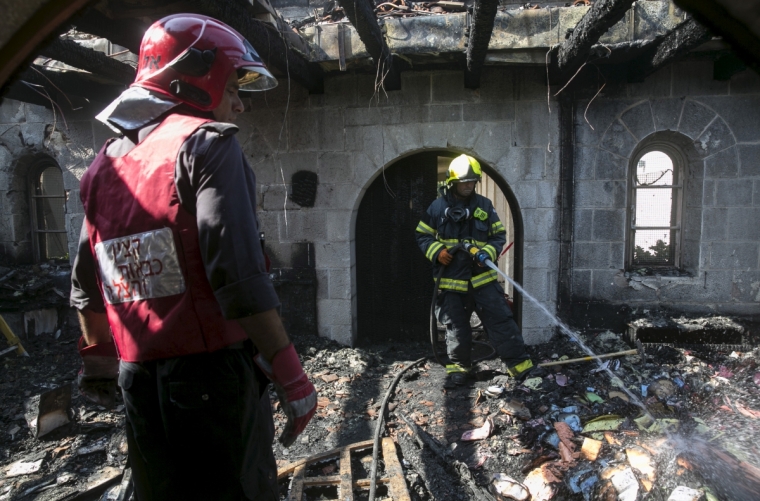Israeli Christians believe Israel cannot be both a democracy and a Jewish state

JERUSALEM (Christian Examiner) – Israeli Christians – the vast majority of them of Arab descent – are for democracy in Israel, but they're not so sure Israel is really concerned with a having a democracy that includes them, the Pew Research Center (PRC) said May 10.
Christians make up just 2 percent of Israel's population, a figure actually lower than the percentage of Christians in Muslim countries throughout the Middle East (roughly 4 percent in 2010). Those few numbers make Christians wonder, the research firm said, if their interests are a concern to the Israeli government.
Israeli Christians have political views similar to those of their fellow Arabs on several other issues as well. For example, majorities of Christians (80%) and Muslims (72%) say the Israeli government is not making a sincere effort to achieve a peace agreement with the Palestinians, and most Christians (79%) and Muslims (61%) in Israel also say the continued building of Jewish settlements in the West Bank hurts Israel's security. And Israeli Christians (86%) and Muslims (75%) both overwhelmingly say the U.S. is too supportive of Israel.
"Politically, Christians agree with Muslims in saying Israel cannot be a democracy and a Jewish state at the same time," the research firm said after an exhaustive study of religion in Israeli society in April. In fact, 72 percent of Israeli Christians feel that way, compared to 63 percent of Israelis who are Muslim.
"Israeli Christians have political views similar to those of their fellow Arabs on several other issues as well. For example, majorities of Christians (80%) and Muslims (72%) say the Israeli government is not making a sincere effort to achieve a peace agreement with the Palestinians, and most Christians (79%) and Muslims (61%) in Israel also say the continued building of Jewish settlements in the West Bank hurts Israel's security. And Israeli Christians (86%) and Muslims (75%) both overwhelmingly say the U.S. is too supportive of Israel."
Unlike their fellow citizens who are Jewish, the survey also claimed that Israeli Christians are a fairly isolated and "close-knit" group, lacking the social and family connections share among Jewish and Muslim citizens. Some of that isolation may be the result of a lack of acceptance of Christians in Jewish society. Much of it may be because Christians have chosen to isolate themselves from Jews and Muslims.
Twenty-one percent of Christians claimed all of their friends are Christian and 65 percent said their closest friends are Christian. Christians also marry almost exclusively within their faith in Israel and are uncomfortable with the idea of their children intermarrying with those of other faith groups.
"Roughly nine-in-ten Christians say they would be "not too" comfortable (9%) or "not at all" comfortable (79%) with their child marrying a Jew, and eight-in-ten (80%) say they would be uncomfortable if a Muslim married into the family," the PRC claimed.
PRC also writes that while Christians in Israel are generally less religious than Muslims, they are much more religious than Jews – who fall into categories of religious, traditionally religious (adhering to customs but not faithfully religious), and secular. Among Christians, 57 percent claimed religion is "very important" to them, a figure 11 points lower than among Muslims. Only 30 percent of Jews claim religion is "very important" to them.
Only about one-third of Israeli Christians are engaged in religious activities, such as prayer and church attendance on a regularly basis. According to the survey, 34 percent pray daily. Slightly more (38 percent) attend services weekly.
Prayer and attendance at religious services was much higher among Muslims, and much lower among Jews.
Israeli Christians have been feeling some pressure in recent days. In June 2015, a Christian church on the north shore of the Sea of Galilee was destroyed by arson. The church, reportedly the site of the miracle of the multiplication of the loaves and fishes, was set alight by extremists (likely Jewish extremists).
The head of Lehava, a far-right Jewish group, Benzi Gopstein, defended the torching of the church as an act of defiance against Christian "idol worship."